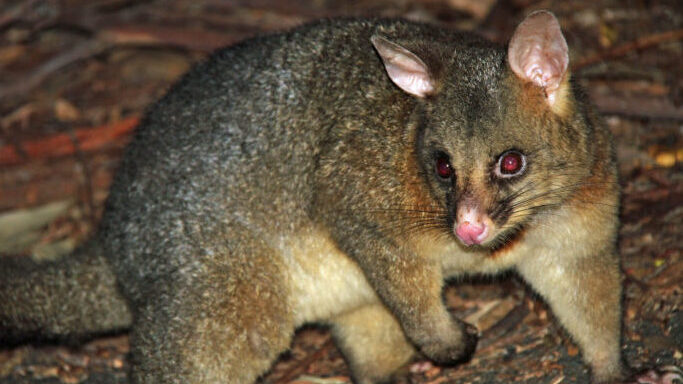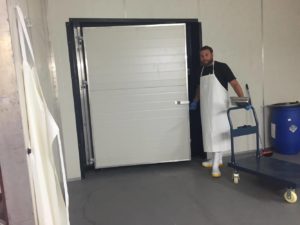When it comes to possums, Zach Howarth believes in ‘utilising it all’. He’s about to sell his first shipment of possum meat to petfood manufacturer ‘Possyum’. Currently there’s a ½ tonne of possum meat sitting in Zach’s brand new chiller in Tahawai, a couple of kms up the road from Katikati. That’s 288 dead possums, all caught in the space of a week by one of Zach’s registered suppliers.

Zach’s supplier has just taken home a cheque for $900 for the possum meat and another $1600 for the fur. Zach buys the fur as well so that his suppliers have a one-stop shop, but its possum meat that he’s focussed on for his new venture. That same supplier is an experienced possum-hunter who would previously have discarded the carcasses, so this week he’s $900 better off.
Zach reckons that a lot of people don’t know about the market for possum meat. When he was a contractor himself, he would kill hundreds and discard the bodies, selling only the fur. Budget cuts within the various organisations that hired him and the unpredictability of winning tenders meant it was getting hard to earn a living from possums, when friends of his parents introduced him to Paul Larkin, a main shareholder in the company which manufactures ‘Possyum’ dog rolls.

Possum is good lean meat, high in omega 3 and 6 – but ‘Possyum’ was finding it hard to expand their business because of limitations in the supply of possums. Paul introduced Zach to Richard Brake from the New Zealand Petfood Manufacturers Association (NZPFMA) who helped him prepare a Risk Management Plan and work through the stringent procedures to get certified with the Ministry of Primary Industries. Just two weeks ago Zach finally got his premises licensed by MPI. He’s also joined the NZPFMA and attended their recent conference where he was encouraged by reports of a 34% increase in the wild game petfood market in the last 12 months, with a similar increase expected again this year.
Zach currently has a couple of guys employed to trap and shoot possums for him, with another six recently registered. To get registered, possum hunters must sit a 10-15 minute open-book exam at Zach’s depo. Zach marks and goes through the exam with the applicant, covering such topics as not sourcing possums from an area that has recently used poisons and the importance of chilling down the carcass within regulation times.
Zach’s role is to find farms and forestry blocks suitable for his registered suppliers to hunt on. Suppliers are given ‘Landowner Declaration’ forms which must be signed by the landowner to say that the possums came off his or her property. The supplier also completes a ‘Wild Animal Statement’ confirming that the animals were alive when taken, were from a TB-free location and had no visible signs of disease. They must bring the statement in to Zach with their meat.
Suppliers remove the gut and intestines from carcasses, but leave the heart, lungs, liver and kidneys. They keep their possums frozen until they have enough to bring in – or until they need some cash. Zach weighs the meat and pays a price per kilo. Then he does a post-mortem, removing the organs and checking for signs of about 30 diseases. Zach reckons possums are pretty healthy animals though. In the years when he was a possum contractor himself he very rarely saw any sign of disease.
The carcasses are then packed in bins, wrapped in plastic, a supplier sticker is attached so that the meat is completely traceable and it is frozen to minus 20 degrees overnight. Next morning the frozen meat is removed from the bins, shrink-wrapped and returned to the freezer until there is enough in stock to be trucked out to ‘Possyum’.
According to Zach, there’s a lot of opportunity for people to be earning from possums. He says it’s easy to kill 10 possums in a day and some days you can get 70-80 possums. With an average of $4-$5 per possum for fur and about the same for the carcass, there’s good money to be made. It’s a growing market that’s good for farmers and forests and makes good, healthy petfood that’s completely NZ-sourced.

